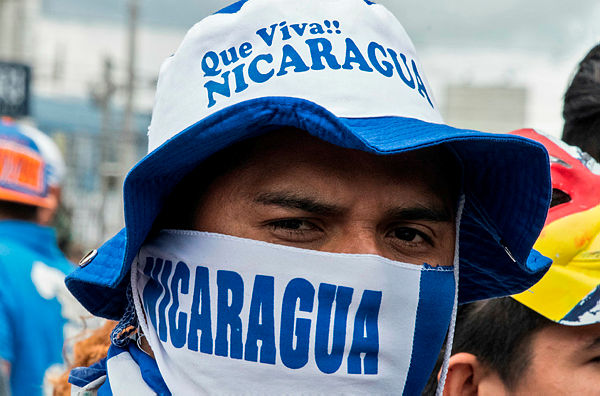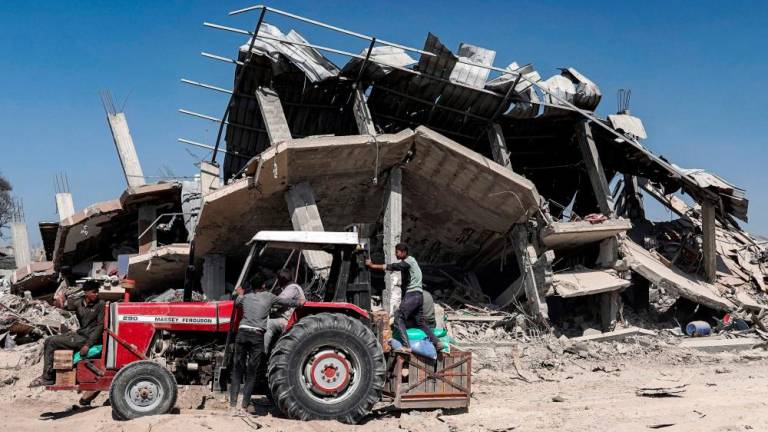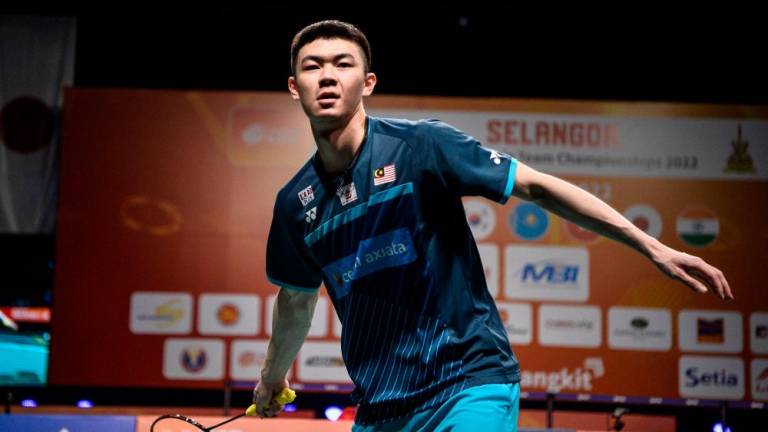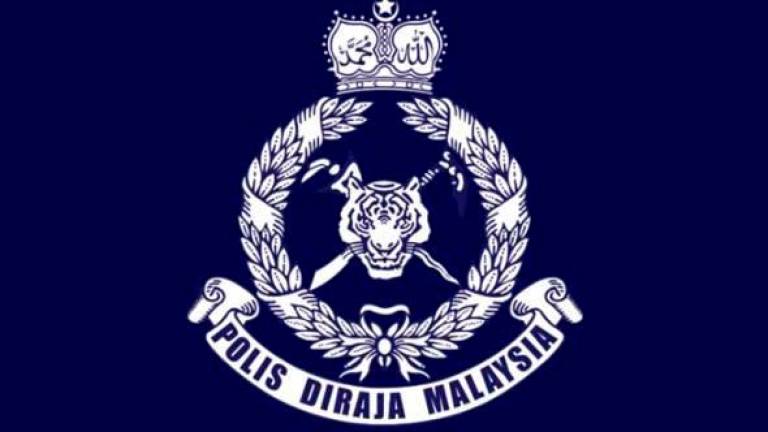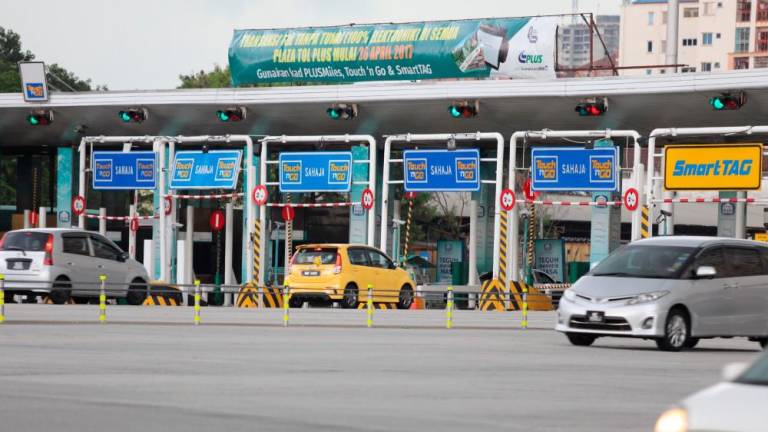MANAGUA: Nicaraguan President Daniel Ortega’s leftist government and the opposition held long-awaited peace talks on Wednesday following the release of prisoners rounded up during months of violence in the Central American country.
The talks – which lasted for about seven hours and will continue on Thursday – are aimed at ending a crisis that began last April. Protests sparked by the government’s now-abandoned pension reform were met with a deadly crackdown from the ruling Sandinista party, leaving hundreds dead amid calls for Ortega to step down.
Ortega did not attend the talks, according to photos released by the opposition business union, which showed six representatives each from the government and opposition faced off at a round table, mediated by Catholic Cardinal Leopoldo Brenes.
The Vatican’s representative in Nicaragua, Stanislaw Waldemar Sommertag, told reporters the first meeting was devoted to defining a “roadmap” for the talks. “On 12 points (raised), agreement was found on nine,“ he said.
Previous Catholic Church-brokered peace talks broke down last June after the president rejected opposition demands to step down and bring forward presidential elections.
A few hours before the start of the talks – held at a university campus around 15 km outside the capital – 100 imprisoned opponents of Ortega were released to house arrest, the interior ministry said in a statement.
But no major opposition leaders were among the detainees who benefited from the measure, observers said. About 670 opponents remained in prison on Wednesday night, according to human rights organizations.
The opposition Civic Alliance coalition had called for the release of all opposition prisoners ahead of the talks.
A crackdown by Ortega’s security forces left 325 people dead and more than 750 arrested and accused of terrorism by the time the protests ended in October.
The violence has forced tens of thousands of others to flee the Central American country.
Independent media have been targeted for harassment, threats and arrests in the crackdown. Nicaraguan journalist Miguel Mora, owner of the 100% Noticias channel shut down by the government, began a hunger strike this week to protest his detention, his lawyer said Tuesday.
Economic crisis
The political tension has exacerbated Nicaragua’s economic crisis. Gross Domestic Product shrank four percent last year and some economists say it could contract 11% in 2019.
On Wednesday, the parliament approved a tax hike on numerous products as part of a plan to raise more than US$300 million to rein in the deficit.
The opposition accuses former guerrilla leader Ortega of establishing a corrupt dictatorship with his wife and vice president, Rosario Murillo.
Murillo, who is also the government spokesman, called for the “full restoration of fraternity and peace in Nicaragua,“ in a statement on the eve of the talks.
Urging a break with recent violence, she called on all sides to “leave behind us the harsh experiences, learning from them, casting off negative feelings from our lives”.
Ortega’s handling of the protests drew condemnation from the United States, which has imposed sanctions on the president and his wife for rights abuses.
Ortega had agreed to resume the talks “because the civil disobedience continues, because of his international isolation and the crisis situation in (ally) Venezuela, and because the economy is in freefall,“ said Azahalea Solis, a member of the opposition delegation at the talks.
US President Donald Trump said last week that “socialism is dying” across Latin America, pointing to leftist regimes in Venezuela, Cuba and Ortega’s Nicaragua.
“When Venezuela is free, Cuba is free, and Nicaragua is free, this will become the first free hemisphere in all of human history,“ said Trump.
Luis Carrion, a former Sandinista guerrilla commander who is now an opposition figure, said the talks were “very complex and risky”.
Ortega “is not seeking in good faith a real solution to the crisis. His goal is to break his isolation and avoid international sanctions, to preserve his power and to remain in the presidency until 2021.” — AFP



